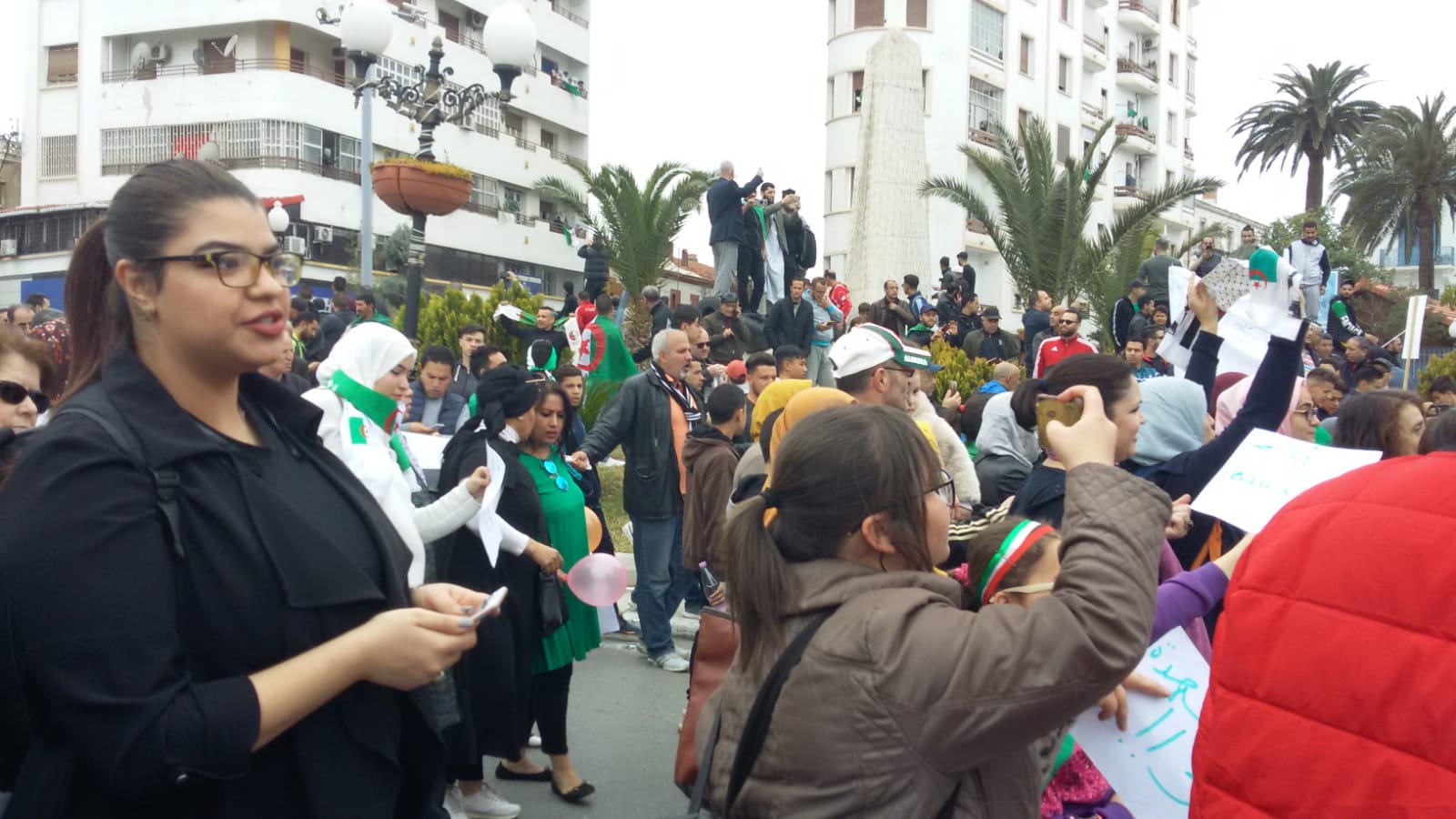A “Nobelisable” Djebar?
M. Lynx Qualey has an interesting post on her Arabic Literature (in English) blog, which I am reposting below. It is quite true that Assia Djebar would have been a much more interesting choice (among many possibles — I still think Adonis should have gotten the Nobel years ago). Her work as a novelist, essayist, poet & filmmaker is breathtaking in its scope, formal inventiveness, historical sweep, psychological savvyness, and sheer relevance for our time and place. But what do you expect from half a dozen white Northern men asked to judge what’s the best in world literature?
Why Didn’t Assia Djebar Win the Nobel Prize for Literature?
BY MLYNXQUALEY on • ( 2 )
Le Figaro raised the question, and some possible answers:
Assia Djebar, taken from “Nomadics.”
When he didn’t recommend Adonis for the Nobel Prize for Literature in 1988 — while recognizing his wide and important poetic gifts — Denys Johnson-Davies recalled saying that, “Adonis could not be called a popular poet, and his decision to give up his actual Muslim name in favour of ‘Adonis’ did not endear him to many Arabs, quite apart from the fact that his poetry was above the heads of many readers[.]“
Let’s say that Adonis’s poetry being over many people’s heads is ultimately not a factor. His role in shaping post-WWII Arabic poetry is certain; his work globally acclaimed (with the occasional naysayer). Yet in the last few years, Adonis’s role — or lack of a role — in the Syrian uprising has made him unpopular with many Arab poets. The likelihood that the Nobel committee would wade into this conflict seems ever-dwindling.
But what about Assia Djebar, the other Arab who features regularly and high on the Ladbrokes betting odds? An informal poll of ArabLit readers over Facebook and Twitter put Djebar on top of Nobel favorites — with Elias Khoury running a strong second. Le Figaro suggests there are several reasons the 77-year-old author hasn’t, and perhaps won’t, get the prize.
The first suggestion is that she’s “not sufficiently universal,” although universality is surely in the eye of the beholder, and the colonial / post-colonial experience is pretty gosh-darn universal, as are the body and femaleness. We’ve all got them. Well, more than half of us. Le Figaro suggests that the recurrence of women and the Algerian revolution hurts Djebar’s chances. (Writers who were thinking of crafting their entire ouvre around what the Nobel committee might want: take note.)
The second suggestion: Djebar doesn’t write in her “mother tongue.” Let’s never mind that Naguib Mahfouz didn’t write in his “mother tongue,” Egyptian Arabic.
The third: Djebar is a writer “for the French,” who hasn’t been sufficiently translated into Arabic or Tamazight. This seems like a terribly red herring. How much of Camus’ writing has been translated into Arabic? Was he just writing “for the French”? And even if he was, what exactly does this change?
Last, and perhaps most importantly: Le Figaro suggests that Djebar doesn’t get enough support from Algerians, that they aren’t ringing the committee daily, sending packages of halwa and kanafeh to sweeten the deal.
When Mahfouz won the Nobel Prize for Literature, he said he had won it for all of Egypt, and indeed he had. Perhaps Alice Munro also won the award for all of Canada. But other of the Nobel lit winners were not national heroes, nor required to be.
Ultimately, this post-game analysis points to how strange the prospect is of choosing one writer from all the world’s different literary traditions as somehow representing “the best,” or at least “a best.”
From Djebar’s ‘Poems for a Happy Algeria’:



 “Todesguge/Deathfugue”
“Todesguge/Deathfugue” “Interglacial Narrows (Poems 1915-2021)”
“Interglacial Narrows (Poems 1915-2021)” “Always the Many, Never the One: Conversations In-between, with Florent Toniello”
“Always the Many, Never the One: Conversations In-between, with Florent Toniello” “Conversations in the Pyrenees”
“Conversations in the Pyrenees” “A Voice Full of Cities: The Collected Essays of Robert Kelly.” Edited by Pierre Joris & Peter Cockelbergh
“A Voice Full of Cities: The Collected Essays of Robert Kelly.” Edited by Pierre Joris & Peter Cockelbergh “An American Suite” (Poems) —Inpatient Press
“An American Suite” (Poems) —Inpatient Press “Arabia (not so) Deserta” : Essays on Maghrebi & Mashreqi Writing & Culture
“Arabia (not so) Deserta” : Essays on Maghrebi & Mashreqi Writing & Culture “Barzakh” (Poems 2000-2012)
“Barzakh” (Poems 2000-2012) “Fox-trails, -tales & -trots”
“Fox-trails, -tales & -trots” “The Agony of I.B.” — A play. Editions PHI & TNL 2016
“The Agony of I.B.” — A play. Editions PHI & TNL 2016 “The Book of U / Le livre des cormorans”
“The Book of U / Le livre des cormorans” “Memory Rose Into Threshold Speech: The Collected Earlier Poetry of Paul Celan”
“Memory Rose Into Threshold Speech: The Collected Earlier Poetry of Paul Celan” “Paul Celan, Microliths They Are, Little Stones”
“Paul Celan, Microliths They Are, Little Stones” “Paul Celan: Breathturn into Timestead-The Collected Later Poetry.” Translated & with commentary by Pierre Joris. Farrar, Straus & Giroux
“Paul Celan: Breathturn into Timestead-The Collected Later Poetry.” Translated & with commentary by Pierre Joris. Farrar, Straus & Giroux